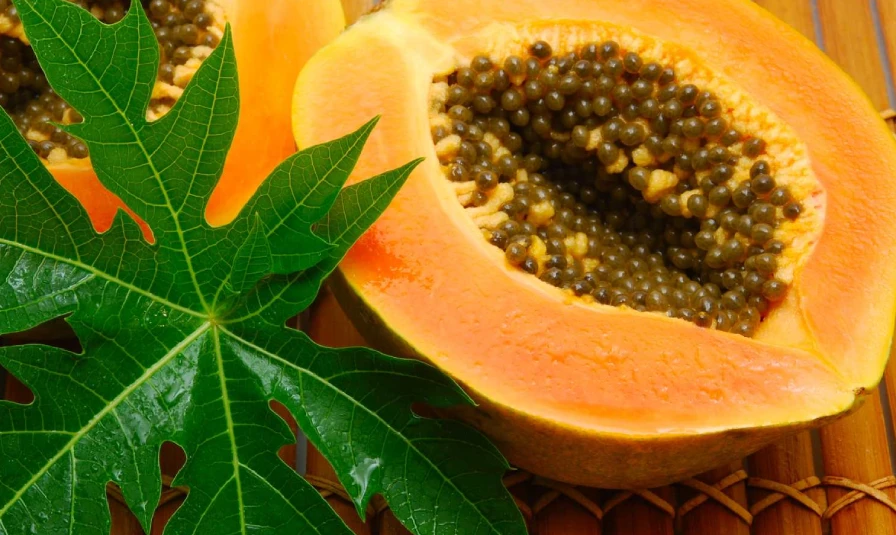Are you feeling unusually tired, bruising easily, or noticing prolonged bleeding from minor cuts? These could be signs of a low platelet count. Platelets are tiny blood cells that play a critical role in blood clotting and wound healing. When platelet levels drop below normal (a condition called thrombocytopenia), your body’s ability to control bleeding is compromised. Fortunately, there are ways to increase platelet count naturally, starting with something as simple as your diet.
At Aspira Pathlab & Diagnostics, we often advise patients to begin with lifestyle and nutritional improvements before considering invasive treatments. In this blog, we’ll share 7 powerful foods that can help you increase your platelet count naturally—most of which are readily available at your local grocery store.
Why Platelet Count Matters?
A healthy platelet count typically ranges from 150,000 to 450,000 platelets per microliter of blood. When your count falls below this range, it could be due to infections (like dengue, chikungunya, or COVID-19), certain medications, autoimmune diseases, or deficiencies in nutrients like iron, folate, and vitamin B12. Before making dietary changes, it’s important to get your platelet levels checked through a Complete Blood Count (CBC) test, which you can easily book through our app, click here.
7 Easily Available Foods That Can Help Increase Platelet Count Naturally
1. Papaya Leaf Extract
Not just the fruit, but papaya leaves are known for their ability to significantly increase platelet counts—especially during viral fevers like dengue. You can crush fresh leaves to extract juice or buy ready-made papaya leaf extract from health stores. Drinking 30 ml of this juice twice a day is a popular home remedy.
2. Pomegranate
Rich in iron, antioxidants, and vitamin C, pomegranate helps fight platelet-reducing inflammation and boosts immunity. Regular consumption of this fruit has been shown to support healthy blood parameters and aid in the recovery of platelet levels.
3. Pumpkin and Pumpkin Seeds
Pumpkin is a good source of vitamin A, which supports platelet production in the bone marrow. Its seeds are packed with zinc, omega-3s, and iron—all of which play a role in enhancing platelet synthesis. Try roasting them for a healthy snack.
4. Leafy Greens (Spinach, Kale, Fenugreek)
Dark green vegetables like spinach and fenugreek leaves are loaded with vitamin K, which is essential for blood clotting. They also provide folate and iron—two nutrients crucial to boosting red blood cells and platelets. Add them to smoothies, dals, or soups.
5. Beetroot
Known as a natural blood purifier, beetroot is rich in antioxidants and iron. Drinking a glass of beetroot juice every alternate day can support bone marrow health and the production of blood cells, including platelets.
6. Amla (Indian Gooseberry)
Amla is packed with vitamin C, which helps your body absorb iron and boosts immune function. You can consume it raw, in juice form, or as dried candy. A strong immune system aids the body in stabilizing platelet count, especially after a viral illness.
7. Nuts & Seeds (Almonds, Walnuts, Flaxseeds)
Rich in omega-3 fatty acids, protein, and essential micronutrients like magnesium and zinc, these support healthy blood formation and immune function. A handful of mixed nuts daily can be a powerful step toward naturally improving platelet health.
Bonus Tips to Support Platelet Recovery
- Stay Hydrated: Dehydration thickens blood and hinders circulation. Aim for 8–10 glasses of water per day.
- Avoid Alcohol: It can suppress bone marrow function and lower platelet count.
- Cut Down on Junk Food: Excess sugar and trans fats can interfere with nutrient absorption.
- Get Rest: Recovery from low platelet count, especially after infection, requires physical rest to allow the body to heal.
When to get Medical Help?
Natural remedies are supportive—but if your platelet count drops severely (below 50,000), or if you’re experiencing symptoms like nosebleeds, blood in urine, or excessive fatigue, it’s time to consult a doctor. A simple CBC test from Aspira Pathlab & Diagnostics can help monitor your levels and determine whether further treatment is needed.
You can book a test online at www.aspiradiagnostics.com and get accurate reports delivered quickly and conveniently.
FAQs: Natural Ways to Boost Platelets
1. How fast can platelets increase naturally?
With proper nutrition, rest, and hydration, platelet count can begin to improve in 3–7 days depending on the cause.
2. Can low platelets be treated at home?
Mild cases can be managed with diet, fluids , medicines and rest, but severe drops require medical evaluation.
3. Is papaya leaf safe for everyone?
It’s generally safe but may not be suitable for pregnant women or people on blood thinners—consult your doctor first.
4. Can exercise help increase platelet count?
Moderate exercise boosts immunity but overexertion can lower platelet count temporarily.
5. Are there any foods that reduce platelet count?
Avoid processed foods, artificial sweeteners, and alcohol, which can hinder platelet production.
6. How often should I check my platelet count?
If you’re recovering from illness or managing a chronic condition, weekly or bi-weekly monitoring is helpful.
In viral diseases generally doctors recommend measure counts every third day.
In case of Hospitalised patients or those with reduced platelets due to viral/parasitic infection
Dengue or malaria – daily monitoring may be necessary.
7. What’s the best way to track improvement?
Regular CBC tests and clinical follow-ups will help you measure progress effectively.
Raising your platelet count naturally is not only possible—it’s practical with the right food choices and lifestyle habits. From papaya leaves to beetroot and amla, nature provides many healing tools. But before trying remedies blindly, start with a proper blood test. At Aspira Pathlab & Diagnostics, we make it easy to monitor your platelet levels and guide you with accurate diagnostics. Visit www.aspiradiagnostics.com today to book your CBC or speak to an expert.

